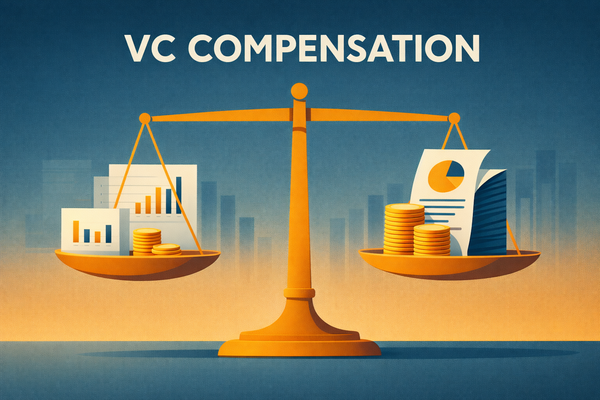How to Run Diligence on Startups: A Risk-Reducing Checklist for Venture Capital Firms
A practical, no-fluff due diligence checklist for VCs evaluating early-stage startups across team, product, finance, and risk.

As a VC, you hear a lot of pitches. Some are sharp. Some feel early. Some sound too good to be true. It’s easy to get caught up in a strong narrative — especially when deals move fast. But momentum isn’t a substitute for substance.
This checklist is designed to help you cut through the noise, identify red flags, and reduce risk. It covers the core areas every investor should be thinking about: how the team works, how the product fits the market, how the business is structured, and where the real risks sit. Not every question will apply to every deal, but keeping this framework close means you’re less likely to miss something that matters.
You can use it as a tool for early screening, deep-dive diligence, or just to stay consistent across your pipeline. However you apply it, the goal is to sharpen your decision-making — and help you back teams for the right reasons, not just the loudest pitch.
✅ 1. Team & Management
- Do you feel confident in the founders and their leadership?
- Could you see yourself working with them long-term?
- Have you looked into their backgrounds—past jobs, credit history, references, social media?
- Do they clearly understand every part of their business?
- Are they honest about the challenges they face?
- Do they know where their own skills fall short, and are they looking to bring in help?
- Can they handle marketing, finances, and tracking results in the early stages?
- Is there a clear plan for how they’ll eventually sell or exit the business?
- Are the founders personally stable and fully committed to the company?
- Do they have any personal issues that might stop them from taking business risks?
- Did they create the business plan themselves, or was it outsourced?
- Is the market research honest and based on facts?
- Are they open to sharing control of the company?
- Do they have enough experience to justify keeping control?
- Have the co-founders worked together before?
- Can this team handle the stress and uncertainty of building a startup?
✅ 2. Market & Industry
- Do they clearly know who their customers are?
- Does the product or service meet a real need?
- Are there strong reasons why customers would choose this over others?
- Is there real demand for it now or in the near future? How big is the market?
- Is the industry already crowded?
- How do they stand out from the competition?
- Are they selling to other businesses, consumers, or both?
- Is their pricing fair and based on logic?
- Will economic conditions affect how much customers are willing to pay?
✅ 3. Product & Tech
- Does the technology work on its own or does it rely on other systems?
- Are any key connections (partners, users) already in place and proven?
- Is it a broad platform, or are they focused on one use first?
- Is their technology protected by any trademarks, patents, or copyrights?
- Does the product improve or replace what's already out there?
- Is there real evidence that it can shake up the market?
- Is the improvement big enough to justify launching a new product?
- If the product is out, how has the market responded?
- If it's not out yet, do they have a clear plan to launch it?
- Can the product change or adapt if the market shifts?
✅ 4. Business Basics
- Have you checked all the shares and share types issued? Is the cap table “clean?”
- Are there any special rights or terms that will make future raises difficult??
- Does their plan for raising money make sense and seem doable?
- Are they asking for the right amount—not too much or too little?
- Are they planning thoughtfully for future funding rounds?
- Is their company valuation reasonable, given their business progress?
- Are there any brand, technology, or team strengths that support the valuation?
- Do they have a clear plan for how you’ll get your money back (exit strategy)?
- Have they hired trusted legal, financial, and intellectual property advisors?
- Do they understand the risks and have plans to handle them?
✅ 5. Finance & Taxation
- Are their financial forecasts detailed and backed up by data and logic?
- Did they get outside help (e.g. an accountant) to create the forecasts?
- Are income and sales predictions realistic?
- How long will it take and how much money will it cost to break even?
- What funding have they raised before, and on what terms?
- Do they have a plan for how much more money they'll need later?
- What fixed costs do they have (like salaries, leases, debts)?
- Can they cut costs if the business slows down?
- Is their balance sheet up-to-date and healthy?
- Are they paying bills on time?
- Are their assets (like property or equipment) valued fairly?
- What factors will affect the exit timing and method?
✅ 6. Company Structure & Legal
- Do they have a chart showing current and past company structures?
- Is the cap table (list of shareholders and their ownership) clear and complete?
- Do they operate from any other addresses?
- Are shareholder agreements in place?
- Are there any options, warrants, or special share rights?
- Do they own parts of any other companies, or do others own part of them?
- Are there any legal issues around share ownership?
✅ 7. Assets
- Have they bought or sold assets in ways that weren’t at market value?
- Are there any key assets they use but don’t own?
- What physical equipment do they have, and who maintains it?
✅ 8. Employees & HR
- Do you have a list of employees with roles, salaries, and benefits (kept anonymous)?
- What do executive or leadership contracts look like?
- Are there any unusual or one-off employment agreements?
- Do they offer bonuses or commissions?
- Is there any health or disability coverage?
- Are they planning any changes to employee benefits?
- Have they promised anything to staff that’s not in writing yet?
- Do they have HR policies, procedures, and handbooks?
- Are there proper procedures for handling complaints and discipline?
- Do they owe money to staff or directors?
- Are there pensions or retirement plans in place?
✅ 9. Trading, Contracts & Operations
- Who are their main customers and suppliers (those making up 5%+ of business)?
- Do they have standard contracts or terms they use regularly?
- Are there any important long-term or unusual contracts?
- Are there contracts that could change or end if ownership changes?
- Are they currently negotiating big deals or contracts?
- Have there been any transactions involving directors or their family/friends?
- Do they have policies to prevent bribery and corruption?
- Do they have all the necessary licenses and approvals?
✅ 10. M&A and Corporate History
- Have they bought or sold any businesses in the past 6 years?
- Are there any unresolved liabilities from those deals?
- Have they restructured internally, and why?
✅ 11. IT Systems & Infrastructure
- What systems, software, and tools do they use?
- Do they have proper licenses for all third-party software?
- Do they use any custom-built software?
- Do they have support or maintenance agreements in place?
- Do they allow others to use or license their software?
- Who developed and maintains the company’s website?
- Are there clear rules for IT use and security?
- Have they experienced any serious tech problems or downtime?
- Is there a plan in place if systems go down or data is lost?
- Do they use open-source software, and are they complying with the rules?
- Do they have an “AI plan” to grow and scale?
✅ 12. IP & Intangible Assets
- Do they have registered trademarks or applications pending?
- What patents or design protections are filed?
- What domain names do they own?
- Do they use any logos or visuals that aren’t officially registered?
- Do they own all the content, software, and creative work?
- Is it clear that employee-created IP belongs to the company?
- Do they have agreements with any third-party developers?
- Are there any licensing deals in place?
- Is there any risk that their IP could be challenged?
- Have there been any disputes over IP?
✅ 13. Debt, Liabilities & Grants
- What loans, credit lines, or financing deals do they have?
- Are there any mortgages or securities?
- Are there rental or lease obligations?
- Have they given or received financial guarantees?
- Have they received any grants or repayable public aid?
- Are they using invoice factoring or similar tools?
✅ 14. Property
- What property do they use, and do they own or lease it?
- Are lease agreements available?
- Are they negotiating any new leases or sales?
- Are there any property-related legal issues?
✅ 15. Data Protection
- Are they registered as a data controller?
- What personal data do they collect and handle?
- Have there been any data breaches or complaints from regulators?
✅ 16. Litigation & Legal Risk
- Are there any legal disputes ongoing or expected?
- Have they had any court orders or legal penalties?
✅ 17. Insurance
- What insurance policies do they hold (type, amount, provider)?
- Have they made any claims recently or expect to?
✅18. Final Review Materials
- Do you have the latest business plan and financial model?
- Have they shared investor decks or recent updates?
- Is there a completed due diligence questionnaire?
- Are there any final disclosures or risks not covered earlier?
- Are all documents consistent and free of red flags?
Conclusion
No early-stage company checks every box. That’s expected. But as a VC, you need a clear sense of what you're stepping into — the good, the unknown, and the stuff that might bite later.
This checklist isn’t here to slow you down or overcomplicate things. It’s here to help you focus: to see what’s solid, spot what’s missing, and push for answers before you commit. Whether you’re leading a round or just writing a small cheque, having this structure in place keeps you honest and reduces the chance of regret down the line.
Clarity beats gut feel. Especially when the stakes are high and the story sounds great.



